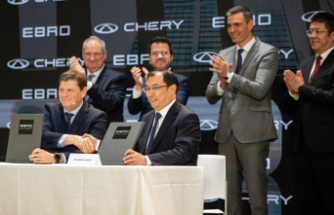When the car-sharing service Car2Go announced last fall that it was leaving the Twin Cities due to “extremely high” state taxes, those who depended on the tiny Smart cars as a transportation option were bereft.
Now a bill introduced at the Legislature would exempt car-sharing firms like Car2Go from paying motor vehicle rental taxes and fees in Minnesota. If the bill passes, its supporters hope Car2Go would come back to the Twin Cities or its competitors would enter the market.
“Services like Car2Go became essential for individuals who couldn’t afford the costs of a car in the city. Whether they were college students, or seniors, or families on a tight budget, car-sharing options were a great alternative to give people more independence,” said Rep. Ilhan Omar, a Minneapolis Democrat who is the nation’s first Somali-American legislator and the bill’s lead author.
Car2Go users find and reserve cars using a smartphone app, drive to their destination, then leave it. Members pay an annual fee, and are charged by the minute, hour or day, depending on how the car is used.
Owned by Daimler North America Corp., Car2Go arrived in the Twin Cities in 2013 and quickly built a fervent following. By the time the company pulled out, it had 29,000 members and 400 vehicles serving the area.
The company said the taxes charged in Minnesota — the same as conventional rental cars — made the Twin Cities one of the most-expensive places in North America to operate its service. (Car2Go has pulled out of other cities, including San Diego and Miami, for the same reason.)
Car2Go spokeswoman Blaire Kniffin declined to comment on the Minnesota legislation until something is more definitive.
In Minnesota, the car-rental tax is 9.2 percent, plus there’s an additional 5 percent fee to reimburse lessors for the cost of registering vehicles, according to the state Department of Revenue. In addition, there’s the general sales tax (now 6.875 percent), plus other local taxes that may apply to motor vehicle leases and rentals.
All told, taxes on short-term car-sharing reservations in Minneapolis are about 22 percent, according to a 2016 study by DePaul University in Chicago.
The study noted that car-sharing’s highly taxed status is rooted in the notion that “taxes on car rentals will fall almost entirely on out-of-towners, including tourists, business travelers, and conference-goers.”
That wasn’t the case with Car2Go, whose users were mostly Twin Citians looking to supplement transit and bicycle commuting options. Other local car-sharing models such as Hourcar and Zipcar use a model in which their cars are returned to the same hub. Car-sharing is different from services such as Uber and Lyft, where drivers use personal vehicles to ferry passengers about for a fee.
“Car sharing complements a system of strong transit, bicycling, and walking options — making it easier for people to get around without the significant expense and hassle of car ownership,” said Jessica Treat, executive director of Transit for Livable Communities & St. Paul Smart Trips, a St. Paul nonprofit that promotes transportation alternatives.
Omar’s bill would exempt car-sharing services from the rental car taxes and fees. It’s unclear how the measure will be received by the Republican-controlled legislature; members of the Minnesota House Republican Caucus could not be reached for comment Friday.
Other states, such as Colorado, have enacted similar laws, according to the National Conference of State Legislatures. And Portland, Ore. — a transit mecca — does not tax car sharing at all.
“Many other jurisdictions have already recognized that equating car rental with car sharing does not make sense,” said Treat. “Minnesota is behind the curve on this issue and currently taxes car-sharing companies at one of the highest rates in the nation.”
While there were nearly 1.5 million car-sharing members in the United States as of July 2015, both round-trip and one-way car-sharing membership declined 4 percent between 2014 and 2015, according to the Transportation Sustainability Research Center in Richmond, Calif. The decline was partly due to high-taxation rates, the center said.
Car2Go pared back its Twin Cities geographic service area in 2015, saying it preferred to concentrate on places that resulted in the most use. Frank Douma, director of the State and Local Policy Program at the University of Minnesota’s Humphrey School, said the Twin Cities are “density challenged. The places where cars were left may have resulted in cars not getting returned, so there was higher overhead” for Car2Go to move the vehicles back to spots where there was demand.
Douma said this phenomenon will change when self-driving cars become more ubiquitous. Car-sharing would result in far-flung cars driving themselves back to areas of high demand. And, he said, more people would opt to pay fees for car sharing instead of shelling out cash for buying and maintaining a car.
“There’s a real market opportunity,” Douma said.
Our editors found this article on this site using Google and regenerated it for our readers.













